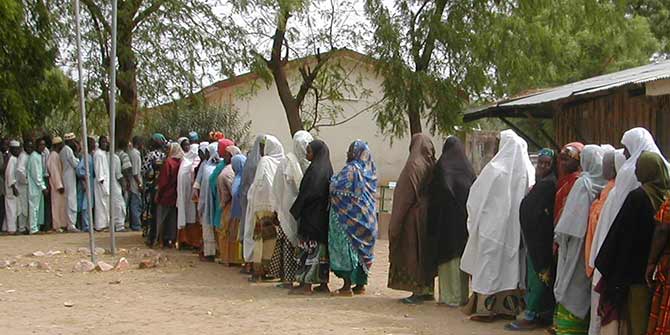LSE’s Mahon Murphy says that Another Man’s War: The Story of a Burma Boy in Britain’s Forgotten African Army provides a good insight into the motivations for West African soldiers to sign up for the British forces during the Second World War.
Britain’s campaign against Japan in Burma during the Second World War was also a significant turning point for British Africa. The war in Burma would be the first time that Britain deployed West African troops to battle zones outside Africa (if, of course, one discounts the use of the West African carrier corps in Mesopotamia during the First World War), and although the Empire beat the Japanese, victory only masked the beginning of the imperial end. The standard work on the Burma campaign and Britain’s defence of its colonies is the wonderful ‘Forgotten Armies: Britain’s Asian Empire and the War with Japan’ by Christopher Bayly and Tim Harper. Al Jazeera journalist, Barnaby Phillips’ debut book ‘Another Man’s War’, the story of a Nigerian soldier Isaac Fadoyebo, takes up this narrative of the Burma campaign but relates the personal side of Imperial warfare. This book, adapted from Phillips’ award-winning 2006 documentary ‘Burma Boy’, not only looks at the experience of Nigerian soldiers in the Second World War but is also a poignant illustration of the lasting memory of the Second World War in Africa and South-East Asia.
The book is divided into two parts, sacrifice and debt. Sacrifice traces Fadoyebo’s journey from Owo, Nigeria in December 1941 to the Burmese jungle in 1943 and back again to Nigeria in 1945. The initial story provides a good insight into the motivations for West African soldiers to sign up for the British forces, from a desire to fight fascism or simply, as in Fadoyebo’s case, becoming a British soldier seemed the best job available and provided a good chance for social advancement. However, the narrative of the book hinges not on Fordoyebo’s motivations to join the war but the serious wounds he received in Burma which saw him wounded, immobile and isolated behind Japanese lines.
Luckily for Fadoyebo and one other wounded West African soldier, David Kargbo, some local villagers took pity on them and brought them food and dressed their wounds. Pretending to be Muslims the two men won the trust of the villagers and one man in particular, Shuyiman who hid them in his home until the British forced the Japanese back. Thus ends the narrative of the first half of the book.
The second half of the book is probably of more interest to readers of the Africa at LSE Blog as it reveals a more novel story than the often clunky narrative of the Burma campaign. (Those who are looking for an account of African soldiers in Burma should see David Killingray’s ‘Fighting for Britain: African Soldiers in the Second World War’, James Currey/Boydell & Brewer, 2010.) The strength of ‘Another Man’s War’ is when Phillips deals with Fadoyebo’s post-war experience, the issues of commemorating an Imperial war once the empire has gone and the generational shift in the memory of the war.
Phillips, as an investigative journalist, set out on a mission to reconnect Fadoyebo to Shuyiman and had just the right amount of luck to track down some of Shuyiman’s (now deceased) relatives in Myanmar. What follows then is an interesting look at the cultural memory of the war as passed down through memory and oral accounts. The grandchildren of Shuyiman knew full well about the African soldiers that their grandfather had harboured and it is quite touching to read about the outbreak of emotion as the author shows them pictures of Fadoyebo and reads the heartfelt letter of gratitude he asked the author to give them.
This idea of memory of the war is also referred to in Fadoyebo’s own accounts. He claimed to have policed a rally in India to guard Gandhi, which as the author maintains was obviously not true. Not that this takes away from the story itself but it highlights an interesting aspect of oral history that Phillips draws our attention to: ‘Memories can slip away from us, but they can also be preserved in a distorted form that calcifies over time.’ (p. 225) Another Man’s War deals with this memory and highlights the lasting impact that acts of human kindness can have.
Another Man’s War: The Story of a Burma Boy in Britain’s Forgotten African Army
Barnaby Phillips Oneworld Publications London 2014 RRP £20 (313 Pages)
ISBN 978-1-78074-522-0
Mahon Murphy has recently competed his PhD in LSE’s Department of International History and is currently working on Germany’s colonies and the First World War. Follow him on Twitter @mahonmurphy.
The views expressed in this post are those of the author and in no way reflect those of the Africa at LSE blog or the London School of Economics and Political Science.





